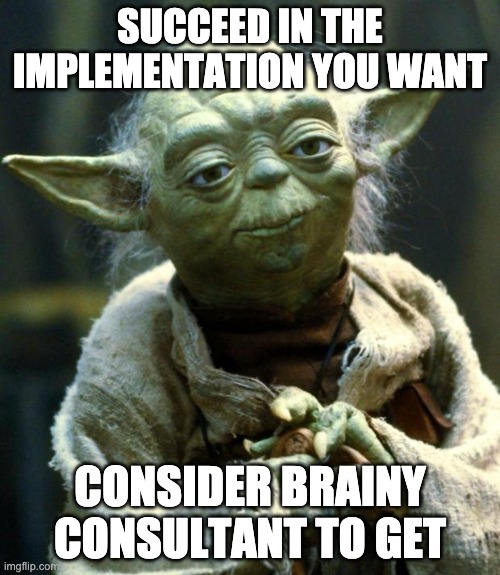When a company realizes that QuickBooks or Excel is not working anymore, it comes up with a need to implement new features to boost its operations to accommodate the changes to prevent glitches occurring in the system. And that’s understandable: companies grow and need to evolve, otherwise, they will be overwhelmed by the competition.
So the winter has come together with the urge to upgrade or implement D365 for Finance & Supply Chain Management. You created RFQ (Request for Quotation), decided on ERP system to pick, did a short outreach campaign to potential implementators. Through a long bureaucratic process, you shook hands with an implementation team to put your organization on D365F&SCM.
So the fun begins. Consultants start extracting information from business analytics/users, who tend to be a hard nut to crack.
A D365F&SCM consultant is more than a standard financial advisor. One helps to align the requirements and goals of ERP strategy with financial & operations goals of the business. He usually works with other staff members to design and align business applications to business targets through the fit/gap.
Fit/Gap Analysis is used to evaluate each functional area in a business process to achieve a specific goal. It includes identifying key data and/or components that fit within the business system and gaps that need solutions. In other words, at this point consultant decides whether business’ needs align with the out-of-the-box system D365F&SCM or it should be a custom solution.
This makes the role essential for the whole project, as things are called or represented differently when it comes down to Dynamics 365 for Finance & Supply Chain Management and a consultant is a mediator between a client and a dev team who transfer information in a biderictorial way.
Slow and steady wins the race.
Back to the topic – do not search for a single consultant – get a brainy implementation team! It does cost more. But consider this as an investment. Eventually, you will save much more in the future. Trust us.
As soon as the implementation team is found – ensure the one is a dab hand at D365 for Finance and Supply Chain Management as well as business operations. Spend more time on the search for professionals with solid experience to help your organization thrive and scale.
Clients love chasing rainbows (who does not?), and a consultant must explain which should be chased and which one should be abandoned. Because some of the desired features might be irrelevant or not needed at all, and some of them might be too expensive to implement.
Nota Bene*: It’s impossible to get all the information about organization’s processes however a consultant must get as close as possible. This is his job – to translate the business language to ERP terminology. One must speak both.



